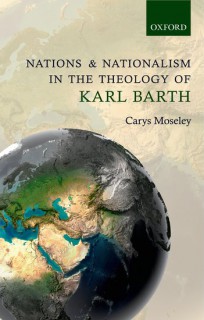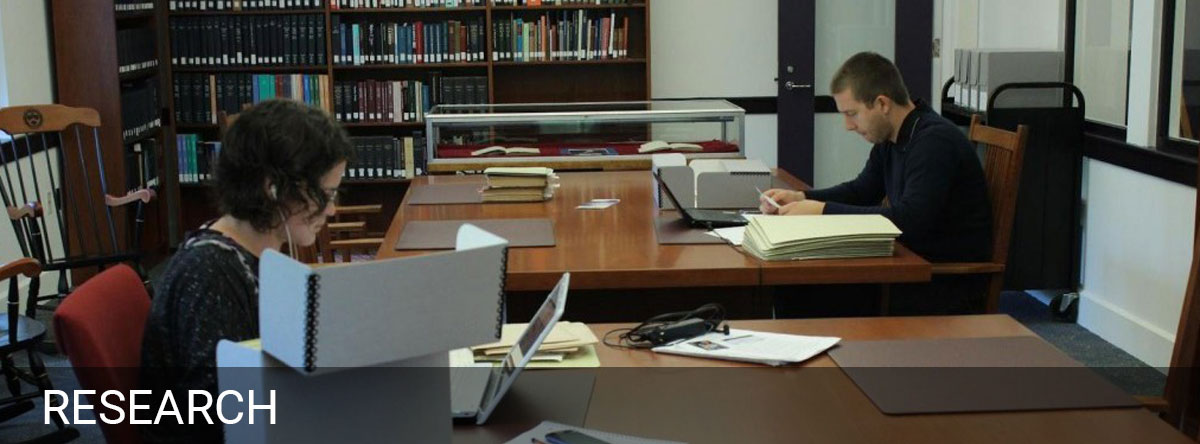 Moseley, Carys. Nations and Nationalism in the Theology of Karl Barth (Oxford: Oxford University Press, 2013), x + 219 pp. $110.00 (hardcover).
Moseley, Carys. Nations and Nationalism in the Theology of Karl Barth (Oxford: Oxford University Press, 2013), x + 219 pp. $110.00 (hardcover).
Reviewed by Clifford B. Anderson (August 25, 2016)
A great deal of contemporary Barth scholarship follows well-worn paths, exploring dogmatic themes with reference primarily to the Church Dogmatics. Refreshingly, Carys Moseley’s Nations and Nationalism in the Theology of Karl Barth charts new territory in the field of Barth studies. Moseley, an independent scholar with a Ph.D. from the University of Edinburgh, traces Barth’s theological perspective on nations from his earliest theology to his Church Dogmatics, drawing on relevant Anglo-American and continental scholarship to articulate her perspective. Her study demonstrates the significance of the neglected concept of nation in Barth’s theology.
Moseley builds on a significant secular body of literature on nations and nationalism. While she introduces key concepts from this literature, readers may find themselves wishing she had provided greater context for some distinctions she draws. In particular, understanding her argument requires distinguishing between “nations” and “states.” As Barth remarked in his Ethics, “Nation and state are not coextensive.” The former is a socio-cultural entity whereas the latter is a political configuration. There are numerous examples of stateless nations-that is, nations without sovereign governments–ranging from the Scots in Great Britain to the Uighur in Asia to the Kurds in the Middle East to the Cherokees in the United States. What is the theological significance of nations? Should every nation have its own state, as nationalists contend? Did God divide the world into nations in Creation? Do nations serve providential purposes or even promote soteriological ends?
Moseley constructs her argument chronologically. From his earliest days, Barth was always hostile toward nationalism. His hostility arose in part due to his Swiss citizenship. As a citizen of a state founded on a treaty between four national groups, Barth inherently rejected the nationalist dogma that every nation must have its own state. His socialism also inclined him toward internationalism. Indeed, Barth’s bitter disappointment at socialist collusion with nationalism at the beginning of the Great War propelled him into his search for new theological foundations. By the conclusion of the war, Barth had developed a trinitarian reading of Scripture that countermanded the tendency to identify the Holy Spirit with national enthusiasms. His firm distinction between the spirit of the nation and the Holy Spirit informed his resistance to National Socialism during the Second World War. However, it also leaves open questions. If nationalism constitutes a form of idolatry, does that mean that national differences also lack theological significance? Barth returned repeatedly to this question throughout his career. In the section on “Near and Distant Neighbors” in Church Dogmatics III/4, he acknowledged nations as historical constructs within which Christians are called to respond to God’s providential decrees. While not rooted in creation, national bear historical significance.
Zionism influenced Barth’s views significantly. The Jewish people were the theological exemplar of a stateless nation, at least prior to 1948. Moseley’s attention to Judaism is crucial for her study. Barth’s support for the establishment of Israel seems to contradict his anti-nationalism. Why should the Jewish nation require its own state when lots of other stateless nations do not? Of course, the fate of the Jews during the Shoah provided abundant historical rationale. But Barth also provided a theological rationale–Israel is not fundamentally a nation in the secular sense, but called to be a nation by divine providence. As Moseley describes Barth’s views, “Israel is a people or nation only due to God’s election” (178). As I understand the argument, the existence of Israel as a nation is not the consequence of the Created order or historical providence, but a judgment against the aseism of other nations and against their consequent nationalisms.
Barth’s understanding of the place of Israel among the nations also likely reflected his reading of the Pentecost narrative. Moseley skillfully intertwines a history of the exegesis of the second chapter of Acts. The Pentecost narrative is relevant for the study because it addresses the relation between the spirit and the national identity. Barth did not subscribe to the dominant opinion among New Testament scholars of the period questioning the reliability of narrative in Acts. Moseley shows that the skeptical reading stemming from F. C. Baur supported theological efforts to disassociate the early church from its Jewish origins. As she notes, such readings of Acts lead others to substitute their nations for Israel. Barth’s acceptance of the (miraculous) historicity of the Pentecost narrative in Acts, which bolstered his defense of the filioque clause in the Nicene Creed, provided him with the theological resources necessary to safeguard the identity of the Spirit against any nationalist appropriation.
Barth’s alternative to nationalism was likely the formation of large multinational states. Moseley notes that Barth’s dislike of nationalism made him “oddly nostalgic for the Holy Roman Empire as a superstate which kept nationalism in its place” (17). Barth backed away from this nostalgia after the Second World War–probably because, Moseley speculates, he wished to avoid conflation of his position with Hitler’s imperialism. Barth would undoubtedly have been a strong supporter of the European Union, however.
We might also wonder what his perspective would have been toward multinational corporations. In our era, corporations are effacing national boundaries and have acquired powers formerly associated with sovereign states. Moseley does not explore this question, which obviously is speculative rather than historical. On the one hand, Barth classified “nationalism, imperialism, and capitalism” together as pernicious forces. On the other, corporations have arguably become social-cultural entities that transcend the boundaries of nations and states, relativizing national cultures and languages. Would Barth’s hostility toward capitalism have predisposed him against finding any positive role for multinational corporations? Or might he have regarded them as unlikely allies in his fight against nationalism?
Nations and Nationalism in the Theology of Karl Barth will appeal broadly beyond the field of Barth studies to ethicists and to scholars working on political theology from a variety of viewpoints. Her attention to the exegesis of Acts makes her study of interest to New Testament scholars as well. Given the wide appeal of her subject matter, I wish that Moseley had confined disagreements with fellow scholars of Karl Barth to the footnotes. The presence of these asides scattered throughout her text likely arises from the book’s origins as an academic dissertation, but detracts from the readability of her narrative.
Despite the occasional forays into intramural disputations, Moseley’s work deserves wide reading from theological and political scholars. In the era of the renewal of political theology, which is closely associated with Carl Schmitt’s claim that politics is always about the distinction between friends and enemies, Barth demonstrated a peaceable alternative that both preserves differences between nations while relativizing their final significance in light of God’s providential designs for the reconciliation and redemption of his peoples.
The views expressed here are strictly those of the author; they do not necessarily represent the views of the Center for Barth Studies or Princeton Theological Seminary.


